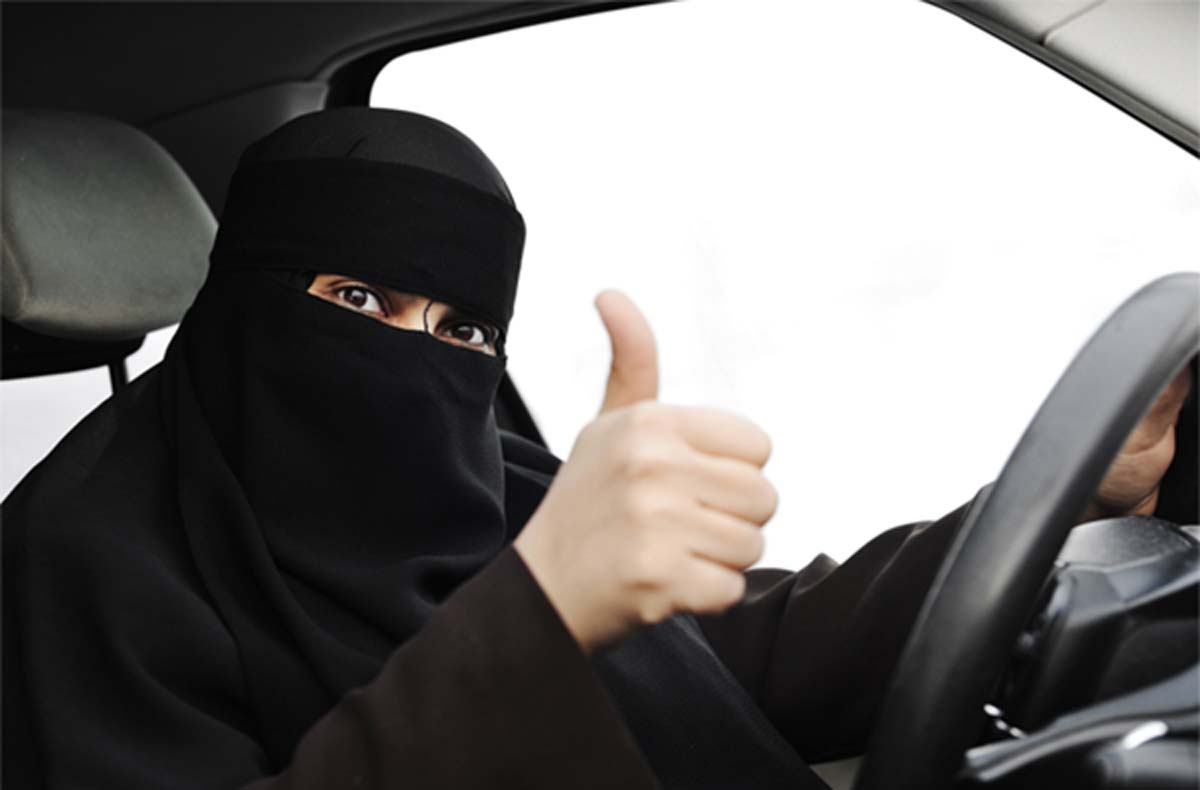On September 26th, the kingdom of Saudi Arabia lifted the ban on women driving. Women in Saudi can now legally drive for the first time since the Iranian revolution. This is as symbolically important as it is practical, for women are being trusted not only to drive, but also to go out without a male’s permission. Women literally have access to a new form of mobility, which will enable them to expand previously isolated lives. This change is of course also positive for men, as many must have been frustrated about having to act as chauffeurs for their perfectly capable female counterparts.
Saudi had long been the only country in the world which wouldn’t allow women to gain driving licences, a fact which Queen Elizabeth appeared to criticise in 1998 when she chose to personally chauffeur King Abdullah on a state visit. While it was easy for the Queen of England to flaunt her driving abilities in Adbullah’s face, it was far more dangerous for regular Saudi women. Loujain Alhathloul was imprisoned in 2014 for defying the ban and many other women suffered arrests and the confiscation of their vehicles. Since 26th September, however, women are finally allowed to hit the roads.
While we must celebrate this recent move towards equality, it is necessary not to overlook the limitations which women in the country still face. In Saudi Arabia, women are still policed in almost every other aspect of their lives. The government dictates that in all spaces where they may be seen by an unrelated male, women must be fully covered. Furthermore, legally, women are still required to have a male guardian, from whom they need permission to travel abroad, to apply for passports and even to get married. A woman’s right to make decisions in Saudi Arabia is still subject to the frankly ridiculous notion that ‘men know best’.
So, why is Saudi so oppressive? Are they merely respecting their cultural heritage, and if so, is it Eurocentric of us to criticise?
Some women, such as Noura Abdularrahman, claim that the enforcement of male guardianship is a tradition of love, not control. While many men and women in Saudi do undoubtedly see guardianship in a positive light, the system still perpetuates the idea that women require male protection and are therefore less capable beings.
In 2008, some Saudi women launched the petition My Guardian Knows What’s Best for Me, reminding us of the complexity of a culture in which women have been systematically indoctrinated with the myth of male superiority.
Although it is unfair to criticise another culture without fully understanding it, I find it hard to believe that all my sisters in Saudi are satisfied with being legally unable to make even medical decisions alone. Indeed, the constant and untiring activism of Saudi women is a stark reminder that women refuse to accept an inferior status and remain submissive in the face of oppression.
A Saudi woman on the end of the ban on women driving: “It is not just driving a car, it is driving a life." https://t.co/RNSqNCCeCv
— New York Times World (@nytimesworld) October 7, 2017
The recent decision to allow women to drive in Saudi is an excellent (if long overdue) move towards equality. However, the women of Saudi deserve much more than just control over vehicles, they need to be allowed control over their lives, too.
Rosie Plummer
Photo credit: http://mvslim.com/history-in-the-making-saudi-arabia-finally-lifts-ban-on-women-driving/

